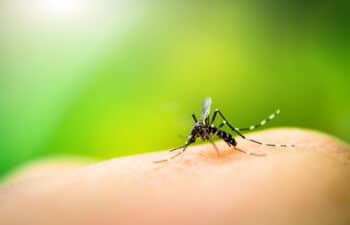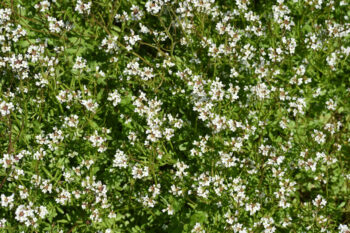 Mosquitoes are pesky, tiny creatures that can transmit deadly diseases like malaria, yellow fever, and dengue fever. They are found worldwide, and they thrive in warm weather.
Mosquitoes are pesky, tiny creatures that can transmit deadly diseases like malaria, yellow fever, and dengue fever. They are found worldwide, and they thrive in warm weather.
Now that summer is upon us, we are going to start seeing more and more mosquitoes. If you’re like me, you are always looking for the best way to get rid of these nettlesome bugs.
Your local garden store will try to sell you plants that “repel” mosquitoes. You may have heard that you should plant citronella, lavender, marigolds, mint, or basil to keep these insects at bay.
I’m going to let you in on a big secret though, these plants do not actually repel mosquitoes. Keeping a properly maintained lawn will help deter bugs from invading your backyard. Ryno Lawn Care offers an affordable lawn mowing service.
Why Just Planting These Plants Will Not Repel Mosquitoes?
Simply planting certain plants in pots and placing them in your garden will not keep mosquitoes away. Although there are some plants that will keep spiders away.
The ingredient that can repel mosquitoes is the oil present in the leaves of plants, and you can only obtain it after drying and crushing these plant leaves.
Even if you were quite happy using that method to repel mosquitoes, the oil needs to be reapplied after a short time in order to be effective.
What Can You Do Instead?
You can apply other methods that better repel mosquitoes. It is important to find what works best for you. There are many effective mosquito control options available. Here are a few suggestions.
- Get rid of standing water
- Larvicide
- Sprays
- Traps
- Zappers
- Ovitraps
- Misters
- Foggers
Get Rid Of Standing Water
Standing water is a key ingredient for mosquito breeding. An easy way to prevent them from flourishing in your yard is to eliminate any sources of standing water.
Larvicide
One promising tool that guarantees the control of mosquitoes is larvicide. This chemical kills mosquito larvae before they can become adults.
Sprays
There are different mosquito repellent sprays available in the market. The most popular type of mosquito repellent sprays includes DEET and Picaridin.
Traps
While many products contain harmful chemicals that can be dangerous to both humans and the environment, you can use homemade mosquito traps.
For example, putting honey in a dish and placing it in a dark corner of the room is an effective trap to kill them.
Zappers
A mosquito zapper is a device that attracts them using ultraviolet light, and when they fly too close, they are killed by an electric shock.
Ovitraps
An ovitrap consists of a small plastic container filled with water and a black sticky surface to which the mosquitoes will attach their eggs.
The trap works by baiting female mosquitoes with a scent that mimics human breath. Once the mosquito enters inside, she becomes trapped and dies.
Misters
Mosquito misters work by spraying a fine mist of water and insecticide over an area. The insecticide works to kill the mosquitoes, and the water helps to keep them away by creating a humid environment that mosquitoes do not like.
Foggers
Mosquito foggers work by releasing pyrethrin, an insecticide that kills mosquitoes. If you only rely on foggers, you will likely see a resurgence of mosquitoes in the treated area within days or weeks.
Conclusion
Some plants may have a very fragrant smell, but they cannot repel mosquitoes. However, if you dry the leaves and crush them, you will obtain oil that will repel mosquitoes for a short amount of time.
Instead of using plants, a better solution would be to use a combination of some of the other mosquito control options we discussed today.
If you’re hoping to enjoy your backyard this summer, call Ryno Lawn Care today. Our insect control methods are successful at keeping unwanted bugs away.






One Response
Thank you for the great article, do you have any reccomendations on organic pest repellents that are safe for animals and children?